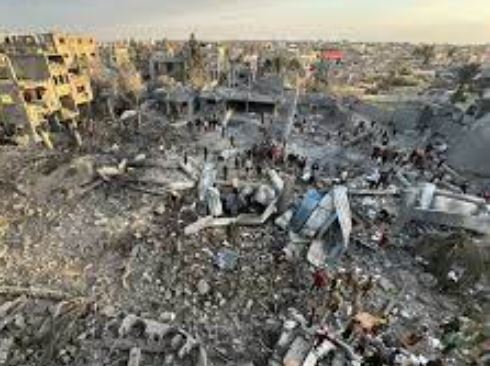Israeli Attack on UN Refuge in Gaza: A Rare Rebuke from Washington

In an unprecedented move, the United States has issued a rare rebuke to its close ally, Israel, following a recent attack on a United Nations refuge in Gaza. This marks a significant moment in U.S.-Israeli relations and highlights the complexities of the ongoing conflict in the region.
The attack, which targeted a United Nations facility in Gaza, has drawn international attention and condemnation. In response, the U.S. State Department expressed deep concern about the incident, emphasizing the need for all parties to respect international humanitarian law and protect civilians and humanitarian facilities.
This response from Washington is noteworthy given the historically strong ties between the United States and Israel. The U.S. has long been one of Israel’s staunchest supporters, often using its veto power in the United Nations Security Council to block resolutions critical of Israeli actions. However, this incident appears to have pushed the U.S. to publicly express its disapproval, signaling a potential shift in its approach to the conflict.
The situation in Gaza remains dire, with residents facing ongoing humanitarian crises exacerbated by military actions. The targeting of a UN refuge, which provides shelter and assistance to civilians, has raised serious questions about the conduct of military operations in densely populated areas and the protection of civilian lives.
This development has stirred a global dialogue about the Israeli-Palestinian conflict, bringing into focus the delicate balance of diplomacy, military action, and humanitarian concerns. The incident has also sparked discussions about the role of international organizations like the United Nations in conflict zones and the responsibilities of global powers in ensuring the protection of human rights.
As the situation evolves, the international community, including key players like the United States and the European Union, will likely face increased pressure to address the longstanding issues at the heart of the Israeli-Palestinian conflict. The recent U.S. response may indicate a new willingness to critically evaluate and respond to actions taken by allies in the region, potentially opening the door for a more balanced approach in future diplomatic efforts.





